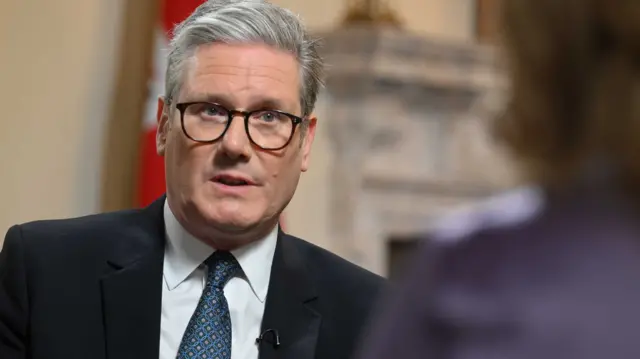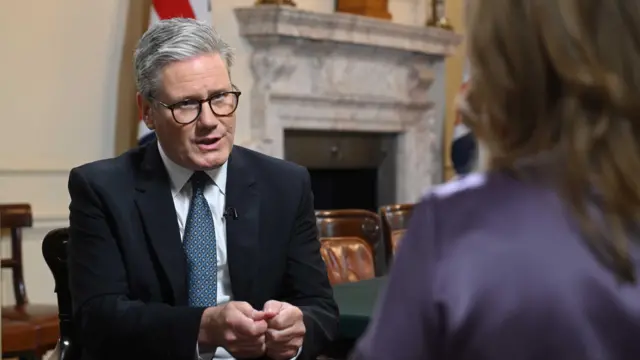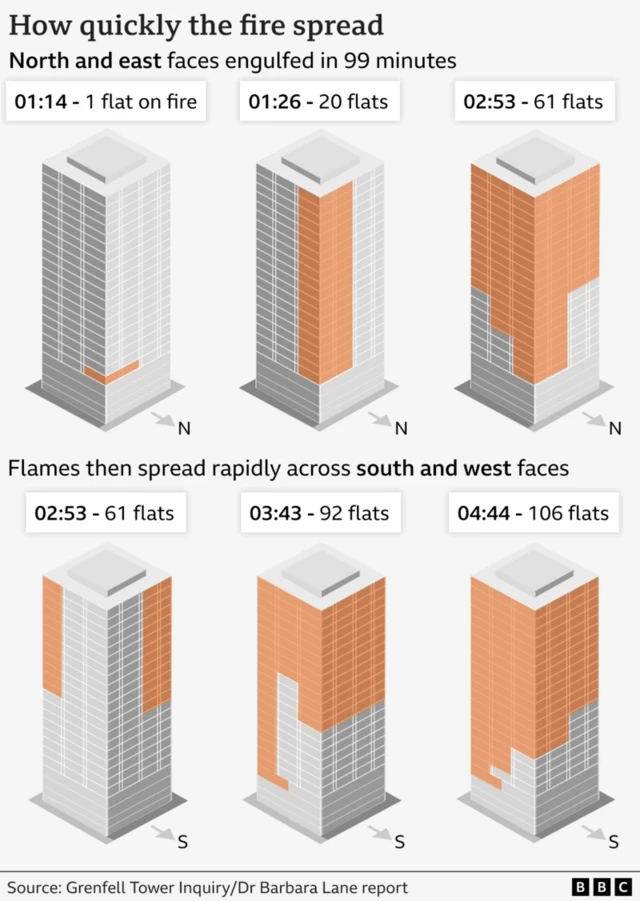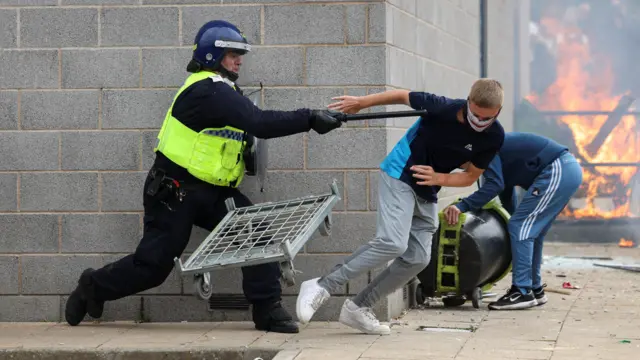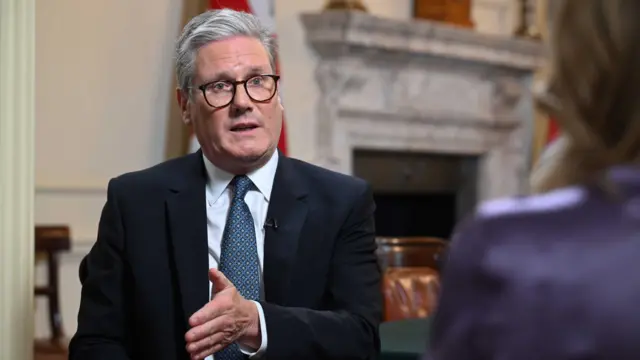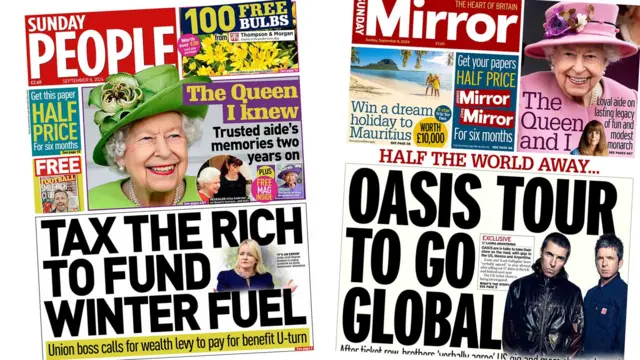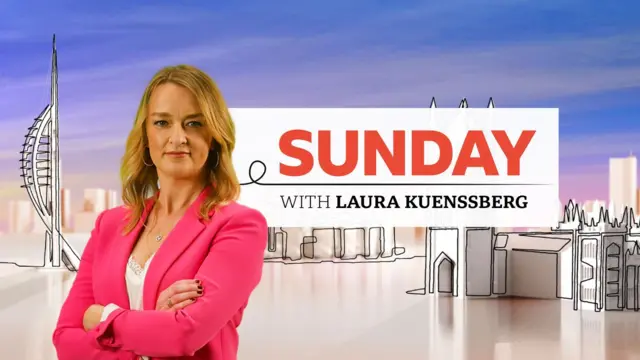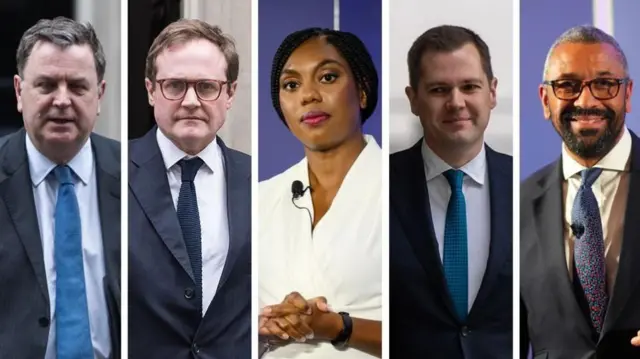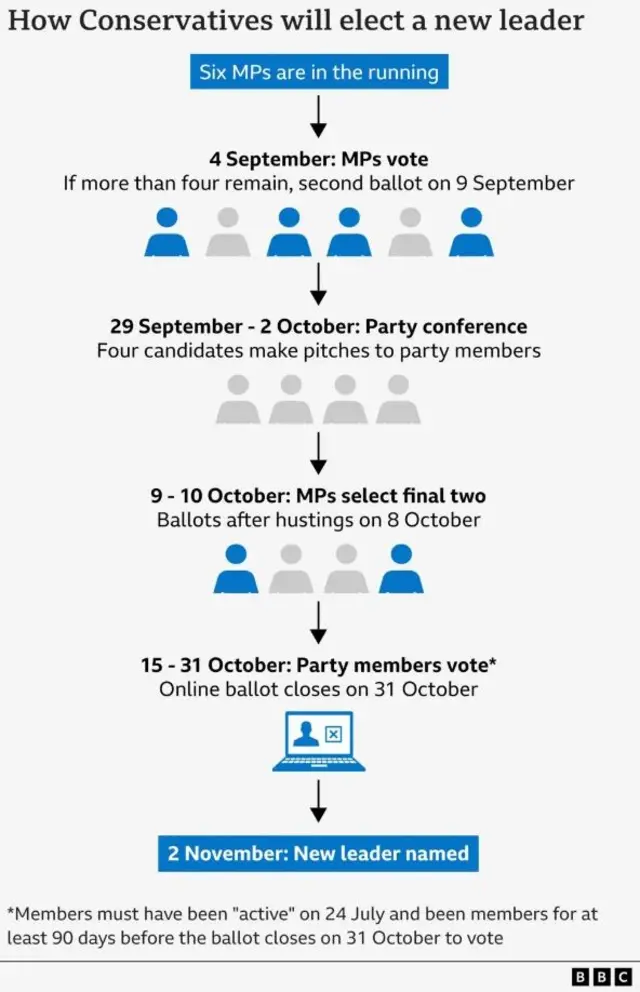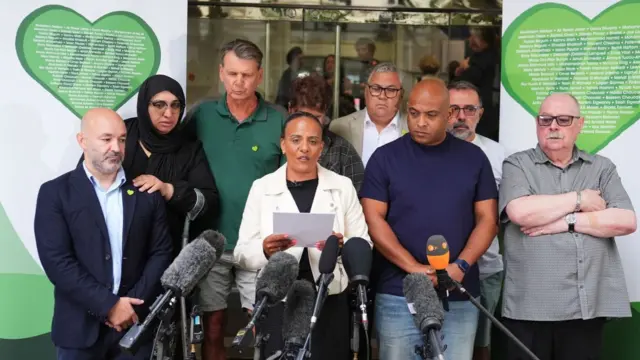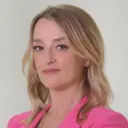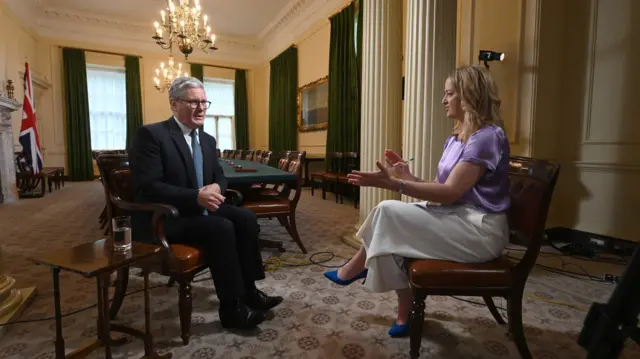We’re going to have to be unpopular - Starmerpublished at 09:22 BST 8 September 2024
Watch: We’re going to have to be unpopular, says prime minister
Laura now asks whether Starmer would suspend or kick out an MP that votes against him when winter fuel payments are debated in the Commons next week.
"I think it’s very important for Parliament to speak on this," he says.
"But every Labour MP was elected in on the same mandate as I was, which is to deliver the change that we need for the country over the time we’ve got in office.
"I’m absolutely convinced we will only deliver that change, I’m absolutely determined we will, if we do the difficult things now."
Are you willing to be unpopular, Laura asks.
"We’re going to have to be unpopular. Tough decisions are tough decisions," he tells her.
